Sports
WADA Revokes Accreditation For Africa’s Only Testing Lab

The World Anti-Doping Association (WADA) has revoked accreditation of The Bloemfontein Laboratory, Africa’s only accredited sports anti-doping lab.
Located in the South African province of Free State, The Bloemfontein Laboratory was placed under analytical testing restriction in 2023 due to the “Gas Chromatography / Combustion / Isotope Ratio Mass Spectrometry (GC/C/IRMS) analytical method.”
In March 2024, WADA suspended the lab for six months, eventually extending the suspension to a year. The organization cited several non-conformities, including technical documents along with the analytical testing restriction.
Now, the lab has no accreditation by WADA or any of its affiliates, effectively ending its ability to work in sports. WADA said that Bloemfontein did not “satisfactorily address” the non-conformities that led to the suspension.
The Bloemfontein Lab did not attempt to challenge the revocation, which was recommended by WADA’s Laboratory Expert Group and approved by its Executive Committee. If it wishes to work in sports in the future, the organization must re-apply for accreditation as a new laboratory.
According to ESPN, transporting athlete samples long distances increases the likelihood that the sample will degrade and therefore be unfit for testing. With no options on the continent, athlete samples in Africa can be sent to labs in Spain, Portugal, Turkey, India, or Qatar.
Sports
Men’s Volleyball No. 2 In Big West Preseason Poll
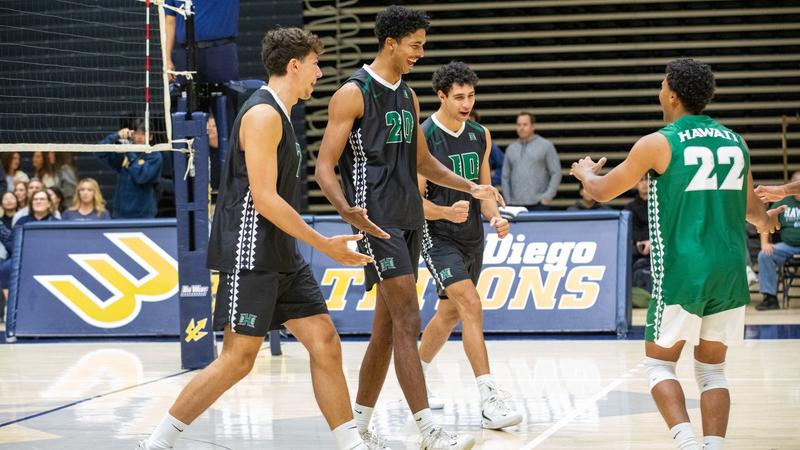
IRVINE, Calif. – The University of Hawai’i men’s volleyball team was picked second in the preseason Big West coaches’ poll while a trio of Rainbow Warriors were named to the seven-member preseason team – setter Tread Rosenthal, outside hitter Adrien Roure, and opposite Kristian Titriyski.
UH received 22 total points and trailed preseason favorite Long Beach State (24 points, 4 first-place votes). UC Irvine (21 points) was third followed by a three-way tie for fourth between CSUN (9), UC San Diego (9), and UC Santa Barbara (9).
Hawai’i returns five starters — Tread Rosenthal, Adrien Roure, Kristian Titriyski, Justin Todd, and Louis Sakanoko — and 12 lettermen from last year’s squad that finished 27-6 and advanced to the NCAA Championship semifinals. Rosenthal and Roure were AVCA first-team All-Americans while Titriyski was named to the second team.
LBSU had two players on the preseason team – Alex Kandev and Skyler Varga – while UCSB (George Bruening) and CSUN (Jalen Phillips) both had one.
The Rainbow Warriors, who captured their fourth Big West Championship title last season, were picked No. 2 in the AVCA Preseason Top 20 Coaches poll behind UCLA. Hawai’i garnered seven first place votes, two more than Long Beach State, who was third.
2026 Big West Preseason Coaches’ Poll
Rk. Team – Points (1st Place Votes)
1. Long Beach State – 24 (4)
2. Hawai’i – 22 (2)
3. UC Irvine – 17
T4. CSUN – 9
T4. UC San Diego – 9
T4. UC Santa Barbara – 9
2026 Big West Preseason Coaches’ Team
George Bruening, R-So., Outside Hitter, UC Santa Barbara, Newport Beach, Calif.
Alex Kandev, So., Outside Hitter, Long Beach State, Sofia, Bulgaria
Jalen Phillips, R-Jr., Opposite Hitter, CSUN, Anaheim, Calif.
Tread Rosenthal, Jr., Setter, Hawai’i, Austin, Texas
Adrien Roure, So, Outside Hitter, Hawai’i, Lyon, France
Kristian Titriyski, So., Opposite Hitter, Hawai’i, Sofia, Bulgaria
Skyler Varga, R-Sr., Opposite Hitter, Long Beach State, Muenster, Saskatchewan
#HawaiiMVB
Sports
Phillips Named to Preseason Coaches’ Team, CSUN Picked to Tie for Fourth

Phillips earned a nod to the preseason team for the first time, joining George Bruening of UC Santa Barbara, Alex Kandev and Skyler Varga of Long Beach State, along with Tread Rosenthal, Adrien Roure, and Kristian Titriyski of Hawai’i on the Preseason Coaches’ Team.
Phillips, a first-team AVCA All-America and first-team All-Big West selection in 2025, became the first Matador named to the AVCA first-team since Kevin McKniff and Jacek Ratazczak in 2010. He was a three-time Big West Offensive Player of the Week (Jan. 20, Feb. 24, Apr. 14) last season, leading CSUN with a career-high 456 kills, while averaging 4.22 kills per set, which ranked second in the Big West and fourth in the nation. Phillips also finished his sophomore season ranked third in the Big West in points, averaging 4.81 per set, and was 13th in hitting percentage at .293.
In the Preseason Poll, the Matadors received nine points from the conference’s head coaches and were predicted to tie for fourth with UC San Diego and UC Santa Barbara, which also received nine points.
Defending national champions Long Beach State earned the top spot in the poll for the second straight season, picking up four first-place votes and 24 total points in the voting. Hawai’i earned the other two first-place votes and 22 total points for second, with UC Irvine earning 17 points for third. With nine points, the trio of the Matadors, Tritons, and Gauchos round out the polling in the vote by the league’s six head coaches.
“I’m sure the Big West will be exactly what we expect it to be; it’s the best volleyball conference in the country,” said head coach Theo Edwards. “All six Big West teams are ranked in the preseason top-20 of the AVCA national poll, so I know the guys on this team will embrace the challenge ahead and are poised to make some noise in the Big West this season.”
As they’ve done 21 times in the last 22 seasons, the Matadors open the season at the annual UCSB Invitational at Robertson Gym. CSUN will meet Maryville University, Harvard, and Kentucky State over the three-day tournament, which runs from Jan. 8-10.
In addition to Phillips, CSUN returns a host of starters in 2026, including outside hitter Joao Avila, middle blockers Joao Favarim and Shane Nhem, and libero Chris Karnezis. The Matadors also welcome a talented group of newcomers in 2026, including redshirt sophomore setter Owen Douphner, who steps in for departed senior All-American Donovan Constable.
The Hawaiian Islands presents the 2026 Outrigger Big West Men’s Volleyball Championship at the Bren Events Center on the campus of UC Irvine from April 23-25, 2026. All six conference members will vie for The Big West’s automatic berth into the national postseason bracket.
#GoMatadors
Sports
Tritons Picked Fourth in Preseason Big West Coaches’ Poll

LA JOLLA, Calif. — UC San Diego men’s volleyball was picked to finish in a tie for fourth in the 2026 Big West Men’s Volleyball Preseason Coaches’ Poll, the conference announced today.
The loaded Big West also sees all six of the conference’s teams ranked in the national AVCA preseason poll. The Tritons are No. 10 nationally.
Long Beach State was picked to win The Big West by the conference’s head coaches after winning the national championship last season. UC San Diego’s projected fourth place finish is the same as the Tritons’ actual finish in 2025 after they went 18-12 overall and 3-7 in Big West play.
The 2026 Triton men’s volleyball season begins at home on January 6 against Jessup. The team’s Big West opener will also be at home as the Tritons host CSUN on March 3. Season and single game tickets are both on sale now.
The Tritons will face each Big West opponent home and away this season with the exception of Hawai’i, who will play in La Jolla twice. The Hawaiian Islands presents the 2026 Outrigger Big West Men’s Volleyball Championship will be April 23-25 on the campus of UC Irvine.
| 2026 Big West Men’s Volleyball Preseason Coaches’ Poll | ||
| Rank | Institution | Points |
| 1. | Long Beach State | 24 (4) |
| 2. | Hawai’i | 22 (2) |
| 3. | UC Irvine | 17 |
| T-4. | UC San Diego | 9 |
| CSUN | 9 | |
| UC Santa Barbara | 9 | |
About UC San Diego Athletics
After two decades as one of the most successful programs in NCAA Division II, the UC San Diego intercollegiate athletics program has begun a new era as a member of The Big West in NCAA Division I. The 24-sport Tritons earned 30 team and nearly 150 individual national championships during its time in Divisions II and III and helped guide 1,400 scholar-athletes to All-America honors. A total of 83 Tritons have earned Academic All-America honors, while 39 have garnered prestigious NCAA Post Graduate Scholarships. UC San Diego scholar-athletes exemplify the academic ideals of one of the world’s preeminent institutions, graduating at an average rate of 90 percent, the highest rate among public institutions in NCAA Division I or II. For more information on the Tritons, visit UCSDtritons.com or follow UC San Diego Athletics on social media @UCSDtritons.
Sports
Bruening Named to Men’s Volleyball Preseason Team
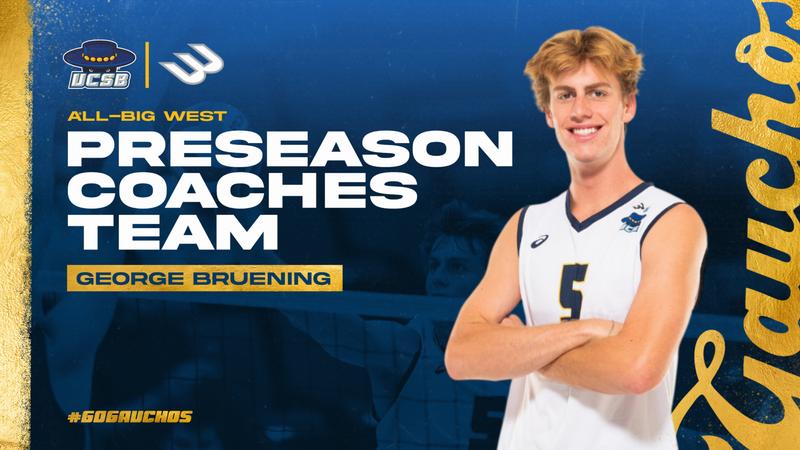
IRVINE, Calif. – The Big West Conference released its 2026 Men’s Volleyball All-Conference Preseason Team on Monday, with UC Santa Barbara’s George Bruening earning preseason honors. Bruening was named to the team alongside players from No. 2 Hawai’i, No. 3 Long Beach State, and No. 11 CSUN.
Bruening exited the 2025 season with a spot on the All-Freshman team as well as a First Team Honorable Mention. He was also recognized as the SBART Men’s Volleyball Athlete of the Year. He averaged 2.97 kills per set and hit .299, the highest on the team.
Additionally, UC Santa Barbara was voted to finish fourth in the conference. Their first match of 2026 will take place on Jan. 8 at 2:00 p.m. versus Kentucky State in Rob Gym.
The Big West Preseason Coaches’ Poll
| Rank / Institution | Points (First Place Votes) |
| 1. Long Beach State | 24 (4) |
| 2. Hawai’i | 22 (2) |
| 3. UC Irvine | 17 |
| T-4. CSUN | 9 |
| T-4. UC San Diego | 9 |
| T-4. UC Santa Barbara | 9 |
The Big West Preseason Coaches’ Team
| Student-Athlete | Institution | Position | Year | Hometown |
| George Bruening | UC Santa Barbara | OH | R-So. | Newport Beach, Calif. |
| Alex Kandev | Long Beach State | OH | So. | Sofia, Bulgaria |
| Jalen Phillips | CSUN | OPP | R.-Jr. | Anaheim, Calif. |
| Tread Rosenthal | Hawai’i | S | Jr. | Austin, Texas |
| Adrien Roure | Hawai’i | OH | So. | Lyon, France |
| Kristian Titriyski | Hawai’i | OPP | So. | Sofia, Bulgaria |
| Skyler Varga | Long Beach State | OPP | R.-Sr. | Muenster, Saskatchewan |
Sports
OVC Mourns the Loss of SIUE Academic Advisor, Former UTM Volleyball Player Lindsey Schmidt

Lindsey has served as an Academic Advisor at SIUE since 2008 and graduated from OVC member institution UT Martin, where she was a standout volleyball student-athlete and helped the Skyhawks to two regular season conference championships. She was named the Most Valuable Player of the 2002 OVC tournament.
“This is heartbreaking for all who knew Lindsey,” said Andrew Gavin, Vice Chancellor and Director of Athletics. “She has long been a beloved member of our athletics family, because of her infectious energy, positive attitude, and incredibly helpful and loving heart. She has provided so much support and love to countless current and past Cougar student-athletes.”
Lindsey was a member of the student-athlete success team at SIUE, working hand in hand with Deputy AD Jaci DeClue for nearly two decades. Lindsey’s support and passion helped student-athletes at SIUE achieve incredible results academically, with 39 consecutive semesters posting a cumulative grade point average of 3.0 or higher. In November, SIUE was recognized as having the top Graduation Success Rate nationally among Division I public institutions.
“Lindsey was a source of light and warmth to all who knew her, with the remarkable ability to make everyone feel seen, valued, and special through her kindness, humility, and genuine care for others,” DeClue shared. “During her 17 years at SIUE, she played a vital role in building an academic support program that served thousands of student-athletes, leaving behind a legacy of compassion, excellence, and lasting impact.
“It was truly an honor to work alongside Lindsey for the past 17 years and to witness firsthand the difference she made every single day. She will be deeply missed by her colleagues, students, and all whose lives were made better by knowing her, and SIUE Athletics will not be the same without her.”
In 2024, she was awarded the Thurston Banks Award by the Ohio Valley Conference, an award that recognizes individuals for their outstanding contributions to OVC student-athletes’ academic success and learning and development.
Sports
Creighton volleyball lands Wisconsin transfer outside hitter Trinity Shadd-Ceres
-

 Motorsports3 weeks ago
Motorsports3 weeks agoSoundGear Named Entitlement Sponsor of Spears CARS Tour Southwest Opener
-

 NIL3 weeks ago
NIL3 weeks agoDeSantis Talks College Football, Calls for Reforms to NIL and Transfer Portal · The Floridian
-

 Sports2 weeks ago
Sports2 weeks ago#11 Volleyball Practices, Then Meets Media Prior to #2 Kentucky Match
-

 Motorsports2 weeks ago
Motorsports2 weeks agoSunoco to sponsor No. 8 Ganassi Honda IndyCar in multi-year deal
-
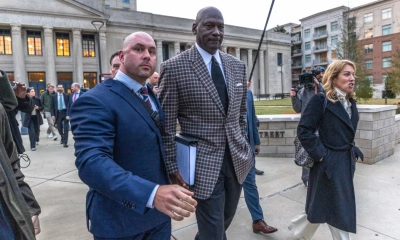
 Motorsports2 weeks ago
Motorsports2 weeks agoNascar legal saga ends as 23XI, Front Row secure settlement
-
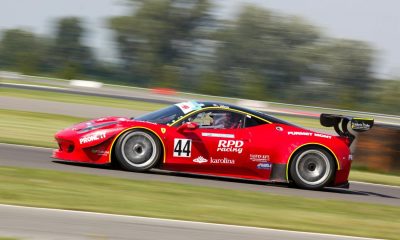
 Motorsports3 weeks ago
Motorsports3 weeks agoAccelerating Inclusion: Breaking Barriers in Motorsport
-
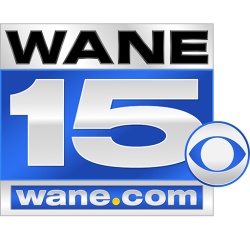
 Motorsports3 weeks ago
Motorsports3 weeks agoNorth Florida Motorsports Park led by Indy 500 Champion and motorsports legend Bobby Rahal Nassau County, FL
-
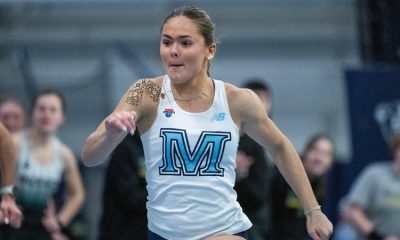
 Sports2 weeks ago
Sports2 weeks agoMaine wraps up Fall Semester with a win in Black Bear Invitational
-
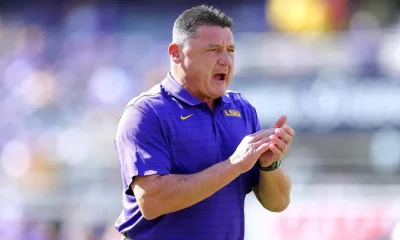
 NIL3 weeks ago
NIL3 weeks agoEd Orgeron: Paying players via NIL would only require a ‘minor adjustment’
-
Motorsports3 weeks ago
NASCAR, 23XI Racing, Front Row Motorsports announce settlement of US monopoly suit | MLex

































